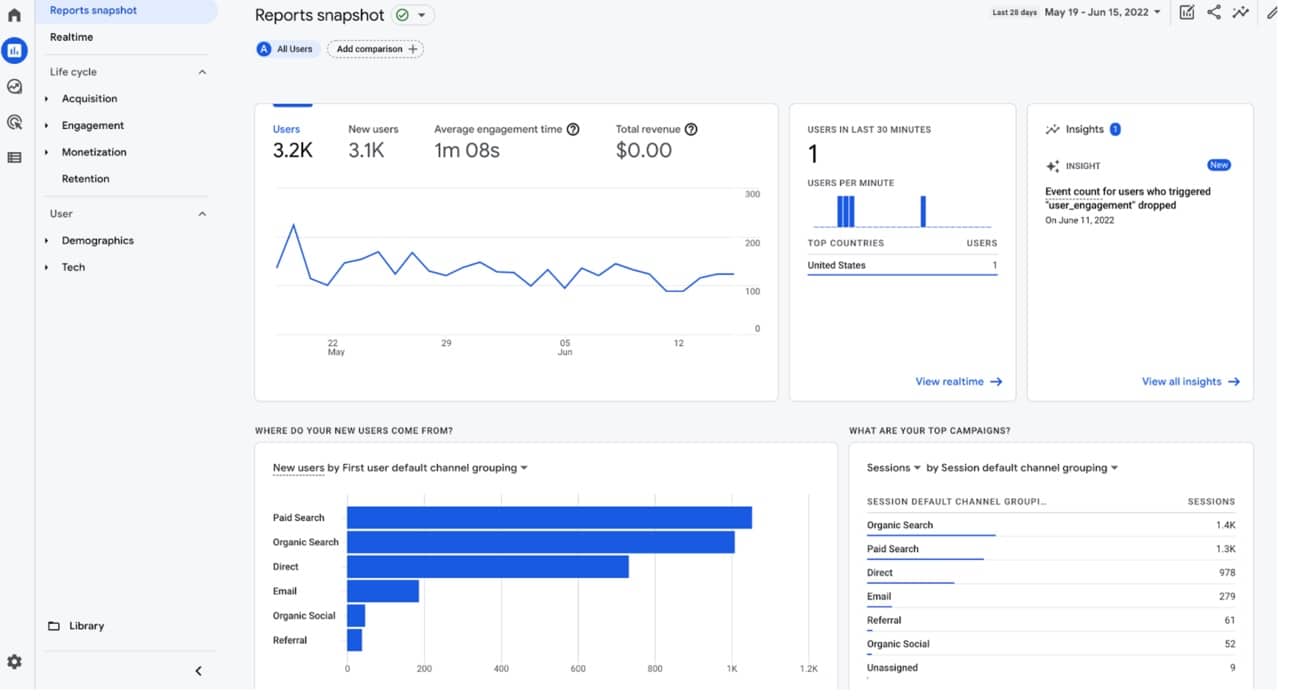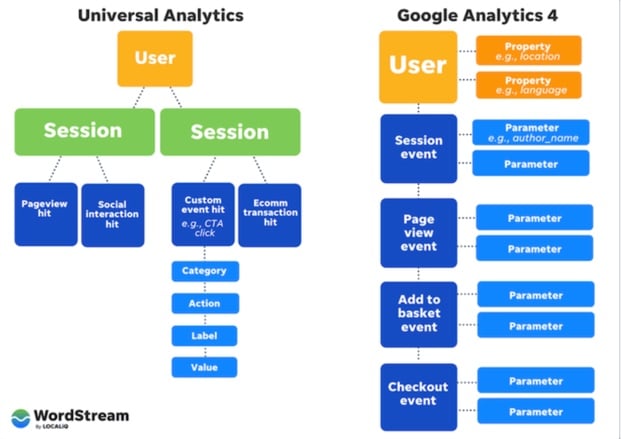On July 1, 2023, Google will officially launch its new analytics platform, Google Analytics 4. There’s still time for you to set your account up and prepare for success. Learn more in our guide below.
What is Google Analytics 4?
Google Analytics 4 (GA4) is a brand-new version of Analytics. It was launched in 2019, and will become the official Analytics platform in July 2023.
It’s a more sophisticated system of compiling data which uses enhanced machine learning techniques developed by Google to better track data across different platforms, including websites and apps. Google developed this platform to focus on the user journey and created cleaner, more robust reports.

What is Happening to the Old Analytics?
Google Analytics 4 seems like a lot to learn. You may ask yourself, why not just keep using the same Analytics platform that’s already in place instead? Unfortunately, we as marketers will no longer have a choice come summer 2023.
The current Analytics platform, Universal Analytics, will officially be sunsetted in July 2023.
Now is the chance to set up your Google Analytics 4 account and build out historical data and learn the platform overall. No data from Universal Analytics will be transferred into GA4, so it may also be smart to export data from past years if this information is important for your business.
TIP: In your Admin settings, make sure data retention is set to 14 months. In order to have more than 14 months, the account needs to sign up for Google Analytics 360.
Universal Analytics vs Google Analytics 4
The reason why no data from Universal Analytics will be transferred into GA4 is because the platforms use vastly different methods in how they track data. If you try to compare the data right now, it will not line up.
The core difference here is that Universal Analytics uses a Session-Based model to track data, whereas Google Analytics 4 uses an Event-Based data model.
No longer will traffic be based on “sessions,” “pageviews,” or “hits”. Rather, it will be focused on “events” and follow “users” through “parameters.” This allows for better cross-tracking between apps and websites, as well as better insights for ecommerce buyer journeys.
Here’s a helpful visual from Wordstream that helps illustrate these differences:
Next Steps
If you do not have Google Analytics 4 set up, make sure to set this up ASAP. This way, you will have historical data built up by the time the new platform takes over next year. It will also give you the chance to play around and get comfortable with the new interface so that you will be ready to adapt your reporting strategy.
For clients of LimeLight Marketing, we’ve proactively set up their GA4 accounts to establish baseline data and prepare them for this change. We’re also providing training to clients and companies to help them effectively make this transition.
If you have questions about Google Analytics 4 and how it affects your business, we are here to help. Reach out to our team today.




